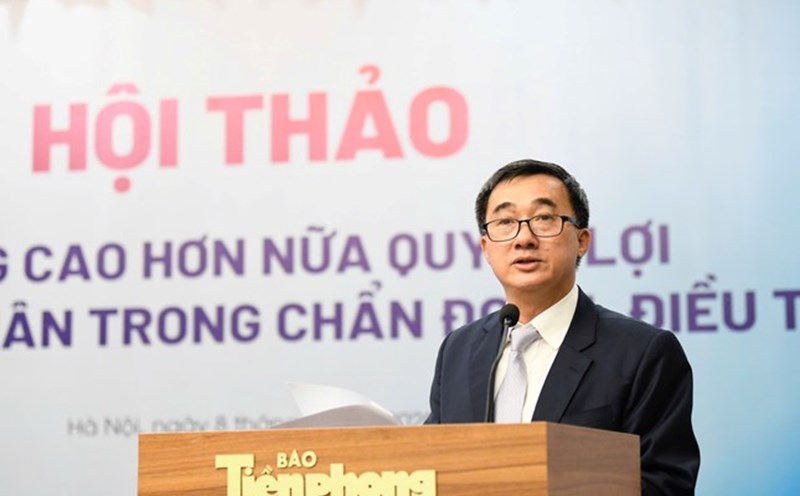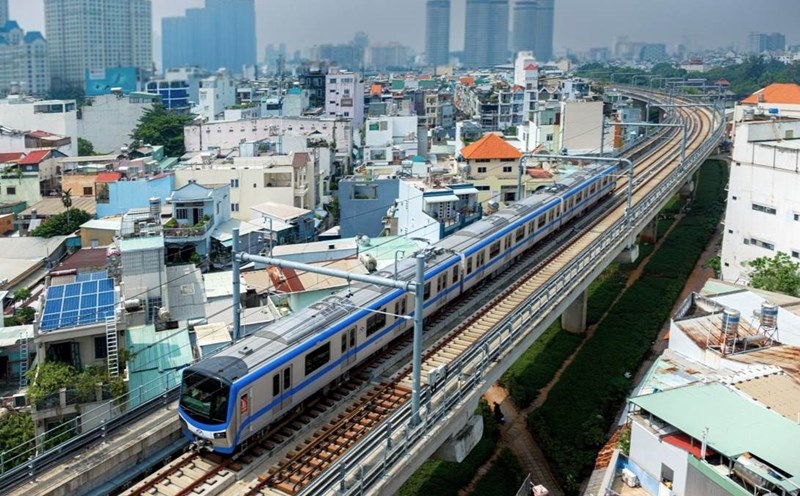Abandoned public offices, lack of schools and hospitals
In 2021, implementing Resolution 1111 of the National Assembly Standing Committee on the arrangement of district and commune-level administrative units, Ho Chi Minh City established Thu Duc City and merged 19 wards of districts 2, 3, 4, 5, 10, Phu Nhuan into 9 wards. However, after 4 years, there are still 75 public offices that are vacant, causing waste.
It is worth mentioning that despite dozens of public offices being left empty, Ho Chi Minh City is still seriously lacking schools and hospitals.
District 12, separated from Hoc Mon district in 1997, currently has nearly 800,000 people with a rapid urbanization rate.
Mr. Ho Minh Hoang - Chief of Office of District 12 People's Committee - said that by 2030, the district is expected to have more than 129,000 students. To meet the needs of two sessions/day of study according to the new general education program, the locality needs up to 3,761 classrooms. In particular, it is necessary to build 705 more rooms in the immediate future and from now until 2030, 468 more rooms must be added.
Although demand is urgent, land funds are a difficult problem. Therefore, District 12 has proposed that the city reclaim many public land plots with an area of tens of thousands of square meters that are currently vacant or have expired to build schools.
Not only the education and health sectors in Ho Chi Minh City are also struggling with overload. Ho Chi Minh City Orthopedic Trauma Hospital, built in 1985 with 500 beds, is currently seriously overloaded. After nearly 40 years of operation, the number of hospitalizations has increased 680 times, and outpatient visits have also increased more than 660 times.
Although the city has plans to build a hospital in Binh Chanh district with a total investment of nearly 2,000 billion VND in the form of BT (construction - transfer), after 15 years of "stepping on the spot", the project has been officially stopped.
The degradation is also happening at Ho Chi Minh City Mental Hospital - the place known as "the worst hospital in the city".The main facility in District 5 has only 50 boarding beds, on an area of 1,700m².Two other facilities in Binh Chanh and Phu Nhuan districts are also cramped, degraded, greatly affecting the effectiveness of treatment.
Surplus public offices will become schools and hospitals
Currently, Ho Chi Minh City has 22 district-level administrative units (including 16 districts, 1 city and 5 districts) and 273 commune-level administrative units (210 wards, 5 towns, 58 communes). In the coming time, the city will remove the district level and rearrange the commune-level administrative units, reducing them to 102 wards and communes.
Chairman of the Ho Chi Minh City People's Committee Nguyen Van Duoc said that in the context of a shortage of schools and hospitals, redundant headquarters will be prioritized for conversion into medical and educational facilities at the ward and commune levels, directly serving the people.
Mr. Do Dang Ai - Deputy Director of Ho Chi Minh City Department of Finance - Information, the city directed the units to review the entire house and public land. Unlated headquarters will be given priority to arrange for newly established agencies and units. In case there is still a redundant, the city will assign the Land Fund Development Center (under the Department of Natural Resources and Environment) to organize auction, lease or assign the Housing Management and Construction Inspection Center (under the Department of Construction) to manage and exploit as prescribed.
Handling the surplus headquarters after the arrangement identified by the Ho Chi Minh City People's Committee will face many difficulties. Some headquarters may be auctioned, but have difficulty calling for investment by having to carry out procedures for changing land use purposes and ensuring compliance with planning. Some infrastructure such as headquarters, medical stations, etc. are unlikely to be resolved appropriately, causing waste, while many other places still need new investment with large budgets.
According to Dr. Pham Viet Thuan - Director of the Ho Chi Minh City Institute of Natural Resources and Environment Economics - converting public offices into schools, parks, and cultural houses is the right direction, ensuring public benefits. Mr. Thuan proposed to establish a specialized Steering Committee, with the task of assessing the progress of handling each surplus headquarters by month and quarter and clearly grouping them to completely resolve the problems.
Sharing the same view, Dr. Tran Quang Thang - Director of the Ho Chi Minh City Institute of Economics and Management - said that converting the function of public offices after the merger to schools is completely reasonable.
"Where there is a large population but a lack of schools, it is necessary to take advantage of available public land funds to avoid new investment while public assets are left fallow. This is an effective way to use social assets, bringing practical benefits to the people" - Mr. Thang said.











